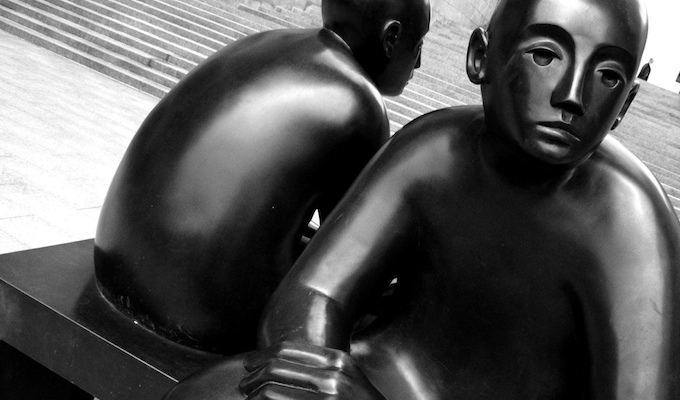By Terence Stone
Forgiveness is a crafty animal to tackle. We often hear others tell us to let go, to forgive the wrongs done to us. Many of us have probably told others the same thing. Yet, we all know it’s not so easily done.
Moreover, even when we decide that it is time to forgive, that we want to be the ‘bigger person,’ the forgiveness is not genuine. We cannot force such a thing. We all have our share of hurts, and we know some are bigger than others.
Often, the bigger ones take time to work through, and I think it is imperative that we allow ourselves that time. I’ve found through my own experiences that it helps immensely to contemplate the concept of forgiveness, and what it means for me.
So without further ado, the following are not so much rules as they are things to remember:
1. Stop re-living the story
Are you replaying the incident over and over again in your head? Are you telling your friends and anyone who will listen the wrong done to you? Are you stewing in anger imagining countless ways in which you could take your revenge? We have all been there. And what’s it doing for us?
Imagine you’re hiking up a steep mountain. A tree suddenly falls. You manage to jump out of the way but it catches your ankle. Now, you’re limping pretty heavily, but you must make it to the top of the mountain. So obviously the most logical thing to do is to take that tree that fell on you, strap it to your back, and continue hiking with your injury.
What? Well, aren’t you doing just that when you hold onto the story? Every time you replay it and re-tell it, you re-live it and re-injure yourself emotionally.
Don’t misunderstand, it is beneficial, and often necessary, to talk to someone we trust about our pain, but there is a limit. After a certain point, no amount of talking or dwelling will change anything. Only conscious action has that power, which brings me to the next point.
2. It’s about you
What? But she was the one who broke my heart. That may be, but this is not about assigning blame to either party. What I mean is that the pain you are feeling is your own. It is so important to accept and examine that in a state of true presence.
This self-scrutiny is extremely difficult to employ when we’re under the influence of such powerful emotions, but it is (I believe) a key aspect of true forgiveness. Sure, there is a time when the wounds are still fresh, and we can only think of healing them in the short term, but later, we must deal with the scars.
If we keep re-opening the wound by dwelling on the story, the scar becomes deeper and deeper. If we stop, listen to our pain, and truly see that we’re causing ourselves more unnecessary pain, we have the chance to keep the scar shallow.
When we are hurt, we become riveted on the aggressor. Our hate, anger, sadness – they seep into our being like venom. And who suffers in the end? When we acknowledge our own place in the story, we begin to extricate ourselves from the cycle of pain.
3. It’s not about fixing anything
This one’s a biggie. Too often, we forgive when we’re not actually ready, when we’re still entrenched in the story, when we still haven’t fully accepted our own complex, overwhelming emotions. The result? More pain – terrible pain.
Sometimes we just want to be done with all the misery, we want to fix things, especially if we’re at odds with someone we hold dear. But we do ourselves great disservice by forcing our own hands.
I admit that I’ve always been a ‘fixer.’ It has taken me a long time and much introspective searching to recognize that I cannot fix anything – not truly. I don’t believe any of us can. Fixing implies something set, something solid and done with. Life is never that way. It is fluid. It changes so quickly, so minutely, so subtly that we cannot comprehend it.
We must realize that forgiveness is not a moment in time that simply makes things better. It is a process that takes time, and more importantly, extreme self-awareness. When we embrace the journey of forgiveness, only then do we begin to heal.
Final thoughts
This is a small list, but it is comprised of the things I’ve found most important for myself. Of course, there are other pertinent things to remember about forgiveness, but what it ultimately comes down to is honesty and presence.
We must have the courage, strength, and compassion to be honest with ourselves first and foremost. And that honesty requires a willingness to take a step back, quiet the mind, and look at what is there – that is presence.
Finally don’t be afraid to be honest with the other person. If we’re not ready to forgive, but we know the other person is very sorry, there is nothing wrong with saying, “I’m not quite ready to forgive you, but I’m working on it.” That is a conscious and honest decision that illuminates the pain without proliferating it.
Wishing you a wealth of compassion and honesty.
Photo by nwhitford
If you enjoyed this article and want to get involved, please subscribe to the blog, like us on facebook, and follow us on twitter or Google+.


